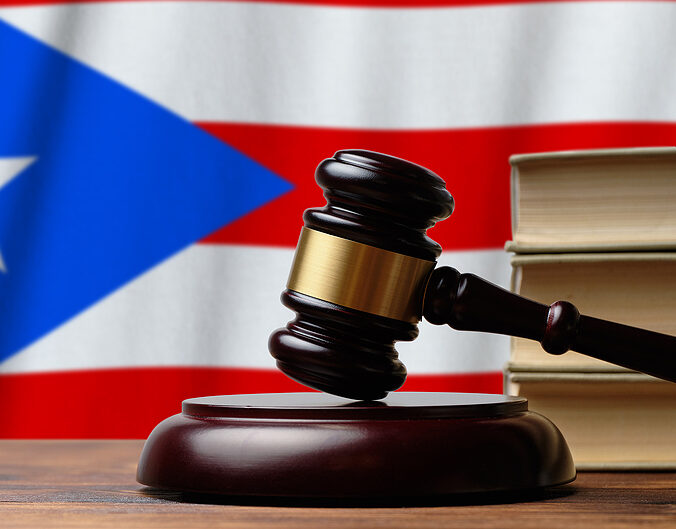A federal judge has thrown out a sweeping climate lawsuit brought by 37 Puerto Rican municipalities, delivering another setback to those trying to hold major oil and gas companies liable in state and local courts.
On Sept. 11, Judge Silvia Carreño-Coll dismissed the case, which alleged that BP, Chevron, ConocoPhillips, ExxonMobil, Marathon Oil and Shell violated federal racketeering laws by conspiring to mislead the public about fossil fuels’ effects on climate change. The municipalities argued the companies’ conduct contributed to the devastation from hurricanes Irma and Maria in 2017, including the island’s prolonged power outages.
Carreño-Coll ruled the claims were filed too late under the four-year statute of limitations for racketeering cases. She also rejected a plea by the plaintiffs to revise their case yet again after they had already narrowed it by dropping consumer fraud, nuisance, conspiracy and false advertising claims.
“(The court) has found the amended complaint deficient,” Carreño-Coll wrote. “It will not grant leave to amend again.”
In a sharply worded opinion, the judge noted that local officials were unsure whether their lawsuit would be deemed “frivolous” and declined to weigh in on whether they had acted “intelligently or wisely.”
Attorneys for the energy companies hailed the ruling.
“The civil justice system exists to resolve current disputes, not to attack and second-guess policy resolutions that have been widely discussed and grappled with openly since Lyndon B. Johnson was president,” said Theodore J. Boutrous Jr., counsel for Chevron.
The Puerto Rico dismissal is part of a string of defeats for climate plaintiffs. Eleven state and federal courts have tossed such cases, including five this year in South Carolina, Pennsylvania, Maryland, New York and New Jersey.
Last month, a South Carolina judge tossed out the city of Charleston’s climate case with prejudice, warning that allowing local governments to impose liability for global emissions would create a “chaotic web of conflicting legal obligations.”
Baltimore’s lawsuit was dismissed last year, and New York City’s “greenwashing” case was thrown out in January. New Jersey’s case was dismissed in February, though the state is appealing.
Earlier this year, Puerto Rico’s government voluntarily dropped a separate climate lawsuit initially filed in 2024 by then-Gov. Pedro Pierluisi, a Democrat. His successor, current Gov. Jenniffer González-Colón, is a Republican.
Since 2018, more than two dozen Democratic-led states and municipalities, backed by environmental advocates, have pursued lawsuits under state nuisance and consumer-protection laws, accusing oil companies of deceiving the public about climate risks. Some cases, including those in Massachusetts, Minnesota, Hawaii and the District of Columbia, are moving forward in state courts after the Supreme Court allowed them to proceed.
Efforts to invoke federal racketeering statutes, as in Puerto Rico, have fared poorly. Enacted in 1970 to target organized crime, RICO laws have since been used against corrupt officials, financiers and even sports leagues. Plaintiffs in the Puerto Rico case had hoped the framework might help secure a multibillion-dollar settlement, similar to the Big Tobacco deal of the 1990s.
So far, the courts have not agreed.
The Puerto Rico municipalities are expected to appeal, potentially setting up a path to the Supreme Court. The high court has already signaled that it wants climate suits to percolate through lower courts before it weighs in.
Meanwhile, energy companies and their allies say these lawsuits are the wrong forum for climate policy.
“Litigation is not a substitute for meaningful climate action, and we urge policymakers to focus on collaborative efforts that deliver real and lasting climate solutions,” said Phil Goldberg, special counsel for the Manufacturers’ Accountability Project.
For environmental advocates, the Puerto Rico defeat underscores the risks of a legal strategy that, so far, has struggled to gain traction. Unlike the tobacco litigation, which found a receptive judiciary, climate cases remain mired in procedural fights, dismissals and a divided patchwork of rulings.
And with each new courtroom loss, the path to a landmark victory becomes narrower.


